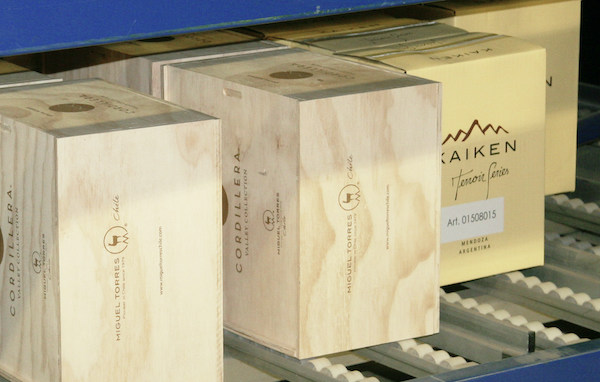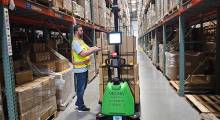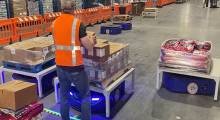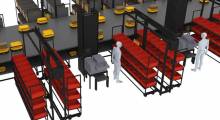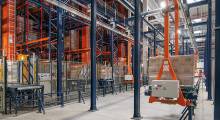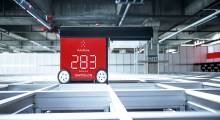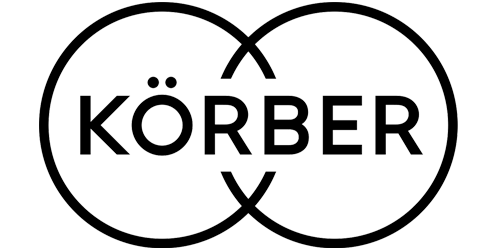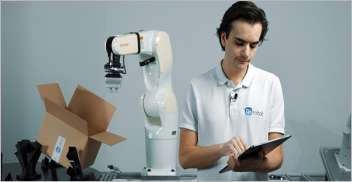The Hawesko Group claimed that it is Germany's largest trading house for high-quality wines and champagnes. It needed to respond to significant e-commerce growth and customer expectations for a seamless digital and physical shopping experience. The company and its Internationale Wein-Logistik GmbH, or IWL, logistics subsidiary are investing in the optimization of their intralogistics processes.
In the next eight months, Körber plans to implement a scalable system including autonomous mobile robots (AMRs) that is fully harmonized with IWL's warehouse management system (WMS). The goal is to improve the agility and flexibility of processes at IWL's center in Tornesch, Germany.
“The preference for online retail has steadily increased over the past decades, forcing companies to invest more heavily in e-commerce than in brick-and-mortar retail,” explained Michael Brandl. He is executive vice president for European, Middle Eastern, and African (EMEA) operations software at Körber Business Area Supply Chain.
“Following the pandemic-induced record year of 2020 with online sales of between €80 billion and €88 billion [$84.3 billion to $92.7 billion U.S.] in Germany, this trend is set to continue, according to a projection by the Center of Research in Retailing,” Brandl said. “Sales of at least €120 billion [$126.5 billion] are expected in German online retail by 2024.”
Hawesko needs to move volume of wine
The Hawesko Group achieved sales of €681 million ($717.8 million) and earnings before interest and taxes (EBIT) of €53 million ($55.8 million) in 2021. The company employs around 1,200 people across the retail (Jacques' and Wein & Co.), business-to-business (Wein Wolf, Abayan, and Grand Cru Select) and e-commerce (HAWESKO, Vinos, and WirWinzer) segments.
The shares of Hawesko Holding SE are listed on the prime standard segment of the Frankfurt Stock Exchange in addition to the Hanseatic Stock Exchange in Hamburg. In Tornesch, IWL handles around 25 million bottles of wine and 600,000 gift packages each year.
Due to the expected growth in e-commerce, the logistics service provider opted for technology that will support further company growth and efficient handling of short-term, seasonal fluctuations at the same time.
Körber integrates robots, software for IWL
As supply chains grow more complex by the day, Körber said it provides a “broad range of proven, end-to-end supply chain solutions fitting any business size, strategy, or appetite for growth.” The Hamburg, Germany-based company said its portfolio includes software, automation, mail and parcel systems, voice technology, robotics, and materials handling systems – plus the expertise to tie it all together.
Körber Supply Chain's deployment for Hawesko and IWL combined supply chain software and robotics by bringing together a total of 35 AMRs, 440 racks, and five workstations. To optimize fulfillment at the end of the second expansion stage Körber is integrating 21 AMRs from trusted partner Geek+, along with the Körber Unified Control System (UCS).
Through this combination of WMS, AMRs, pick-by-light systems, and the UCS, the company said the efficiency and quality of IWL's logistics processes will significantly improve. The integrated system can also bring the performance of C-parts logistics up to the level of A- and B-parts, said Körber. Picking performance alone is more than doubled, it added.
“The potential of C-parts logistics is often underestimated because the focus is on A and B parts,” noted Brandl. “Yet C-parts now have a strategic importance for customer experience and retention, as well as the entire process from ordering to delivery.”
With this launch, IWL is building on its previous successes. Since 2006, the company has relied on a logistics ecosystem based on the K.Motion WMS.
“Körber's innovative supply chain solutions run on a unique platform that allows us to quickly adapt our distribution processes, support the buying process, and provide a seamless omnichannel experience for our customers,” said Frederick Paulsen, head of IT at IWL.
Article topics
Email Sign Up



